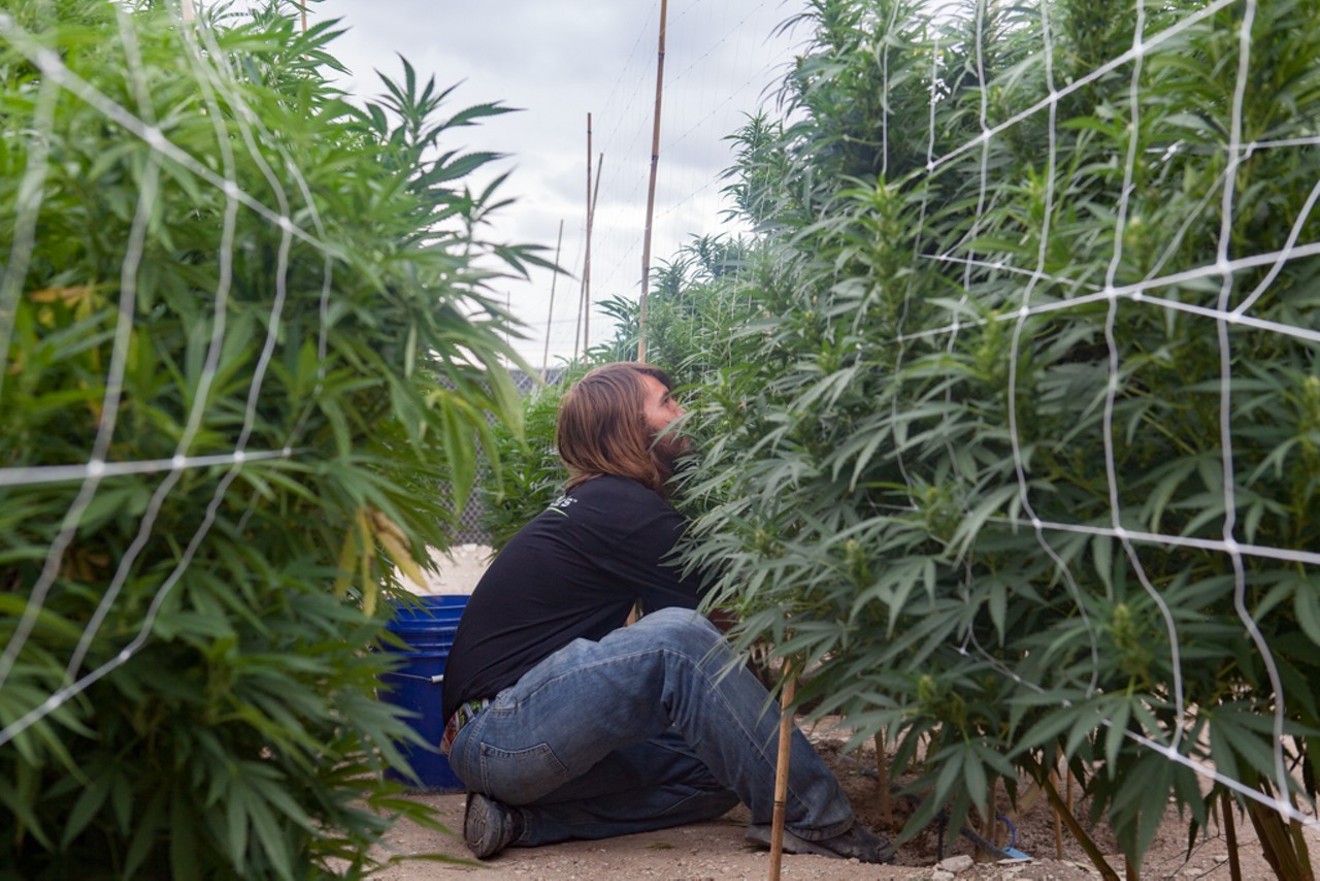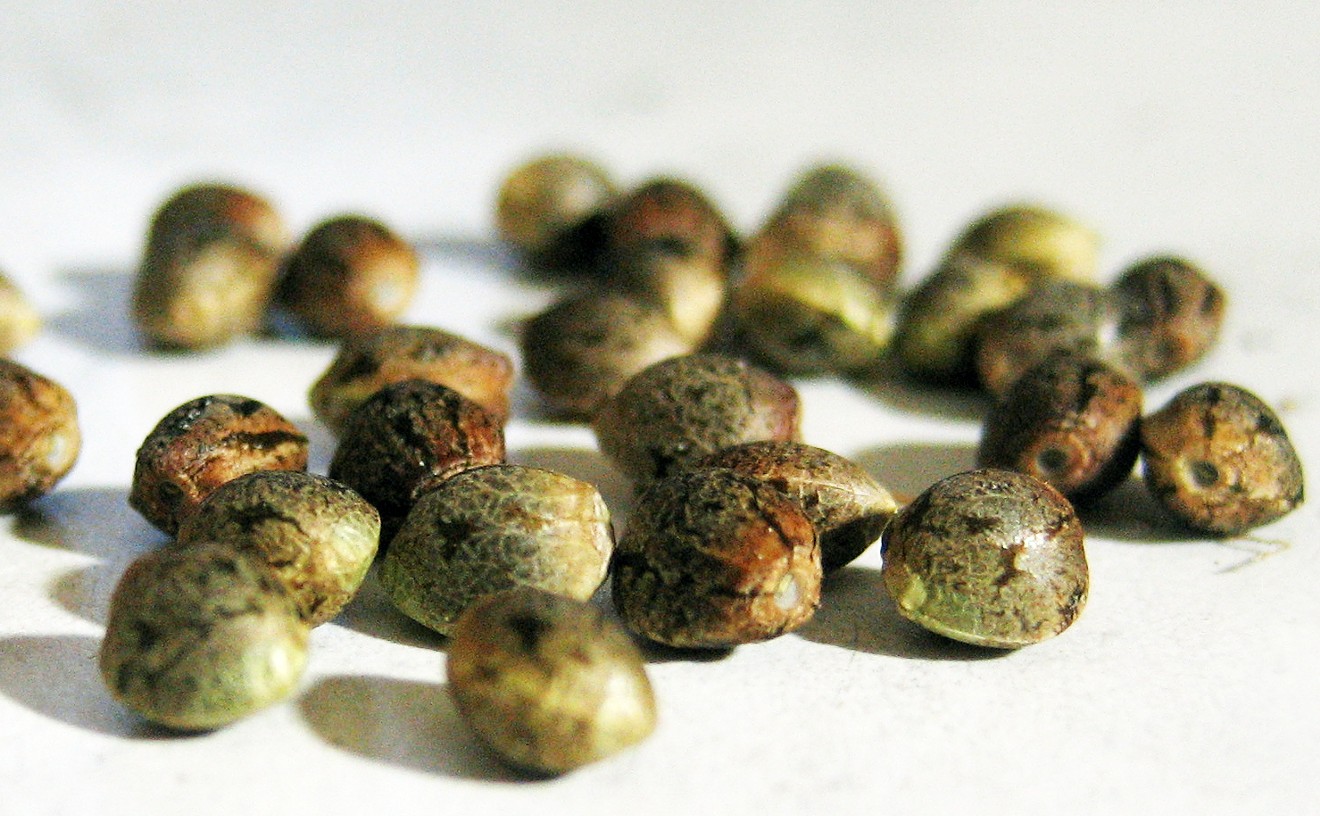
Fall always sees a high demand for cannabis workers, but 2021 is a unique situation.
Jacqueline Collins
But in 2021, cannabis companies might have to search harder than usual for workers.
This year's Croptober coincides with a national labor shortage for hourly workers, and temporary pot-trimming gigs might not be attractive enough as restaurant and retail owners increase their wages, according to Viridian Staffing CEO Kara Bradford. A veteran of human resources with over twenty years' experience, Bradford has operated cannabis staffing services since 2013, but says that she's never before seen a job market like this one in the pot industry.
We caught up with Bradford to find out why fall is always so busy for legal weed, and how cannabis business owners are improving compensation to find more workers.
Westword: What's different about cannabis employment or the industry in general during this time of year?
Kara Bradford: It's busy this time of year every year just because you have an increased number of outdoor harvests that need labor. But this year has been extra special, specifically in Colorado more than we've seen anywhere else. Colorado is definitely having some labor-shortage issues. There are a variety of reasons that I think are responsible, but this year has been much more challenging than what we've seen in previous years.
What do you think is behind the labor shortage? Are the reasons similar to what the restaurant and service industries are going through?
Yeah, they're actually one and the same. We are seeing restaurant and retail stores having to offer increased wages in order to attract talent, and with those wages going up, cannabis wages need to go up, also, to attract and retain talent. If wages aren't going up, cannabis companies are having a difficult time with attracting and attaining workers.
In cannabis, we have all sort of fun taxes that we have to pay. And because of those taxes, our margins are slimmer than what you might think. It all comes back to supply and demand. There is a limited amount of individuals wanting to work in cannabis spaces for a certain wage, and the demand is high for individuals working those jobs. You also have the increase in minimum wage that we saw in Colorado this year, which is definitely having an impact. A lot of companies did adjust their wages based on that, and are now paying more of a living wage than a minimum wage, but there was still an adjustment that needed to made. Companies that aren't adjusting are struggling to find talent.
So is it a trickle-down, where people who would be working these temporary cannabis jobs are now applying for better-paying restaurant and retail jobs instead?
Yes. They're popping into hospitality and serving, where they're not necessarily getting the same hourly rate, but they're getting a lot of tips. So we've talked to some of our clients about considering a bonus on top of hourly wages for employees who do great jobs at harvesting and trimming. This is going to be a learning year for all of us, and we understand the environment has changed. We've been in an employers' market for so long, and now we're running into a situation where people are choosing not to go back to work for a number of reasons, and some workers just moved away during COVID. There are a number of things that are piling on top of one another right now, and it leads to a lot of ups and downs in Colorado.
How are cannabis employers responding? Have they been slow to offer better wages?
Some are, some aren't. I wouldn't say they're necessarily slow, but more that this has been evolving quickly. This all started happening around July in Denver, when wages went up again. We have about two months' worth of data to see this shift happening, and now we're figuring out how to best address it. Companies are trying, but we do have all those taxes we have to consider, as well as the cost of being compliant in a very regulated industry. The margins are just slimmer in cannabis than in other industries, so we need to figure out how to do right by employees while keeping the operations open.
Sounds like new forces are at play during a seasonally hard time for cannabis businesses. How does this affect shopping at the dispensary?
We sort of had a dress rehearsal last year, for very different reasons — more so in California than Colorado. We typically have this mass influx of people from other countries during the fall to work in cannabis's harvest season, and it's because they're working in the unregulated space and get paid under the table. So they come to the U.S. for "vacation," but they're actually trimming cannabis for two or three weeks, and then they go home. But last year people couldn't travel across the globe like we've been accustomed to, so everyone was competing for the same talent within the U.S. We saw wages go up during harvest season last year — very much so in California, and somewhat in Colorado, as well. Last year we learned that trim jobs that paid $15 per hour two years ago are now paying $17.50 or $18 an hour.
Is it just lower-level and temporary jobs that cannabis companies are struggling to fill, or are they having trouble finding candidates for management and office jobs, too?
Oh, it's all over the place. I'm on the HR committee for the National Cannabis Industry Association, and I was telling them how one of my recruiters was told by a job candidate that she was "collecting offers." They're just seeing how many offers they can get before deciding what they want to do. While we've seen that happen for really top talent before in cannabis, now we're seeing a traditional floor manager getting four or five job offers that are competing against each other. We saw that happening around April and May with more senior-level positions. I've been in HR for over twenty years, and this is very unique — but we've never been part of a global pandemic before, and these things can happen.
With cannabis still being a new industry and so many different factors at play year to year, how hard is it to predict the ebbs and flows of the job market?
We watch it happen from state to state. I think Washington and Colorado, and to some extent California and Oregon, are all sort of experiencing this shortage. As other markets come online, they go through similar transitions. But we've never seen restaurant or retail businesses offer $1,500 sign-up bonuses to new employees before, so this is all sort of new. And retail has its own busy season coming up, too, so that will be interesting to watch. There seems to be a cannabis labor shortage especially around the Denver area, so as fall harvest begins, that could become greater.
Is this an agricultural or commodified aspect that will always remain in the cannabis industry?
There are probably a lot of economists that could answer that question better than I, but I think in some respects it is very agricultural, so we will see some similar things other commodities go through. But the seasonal demand for talent during the fall harvest is never going away, and because we're still federally illegal, we can't legally hire workers from other countries. Until we can, we may continue to see those labor shortages.
Do any other seasons affect cannabis in their own way, or is it just the fall and Croptober?
It depends on the state. We'll see some of it pop up year-round with indoor operations. The indoor operations that have been around longer have staff all year for the harvest-type work, but even they are looking for staff now. We used to have lulls in January or February, but it hasn't been that way since 2017.













